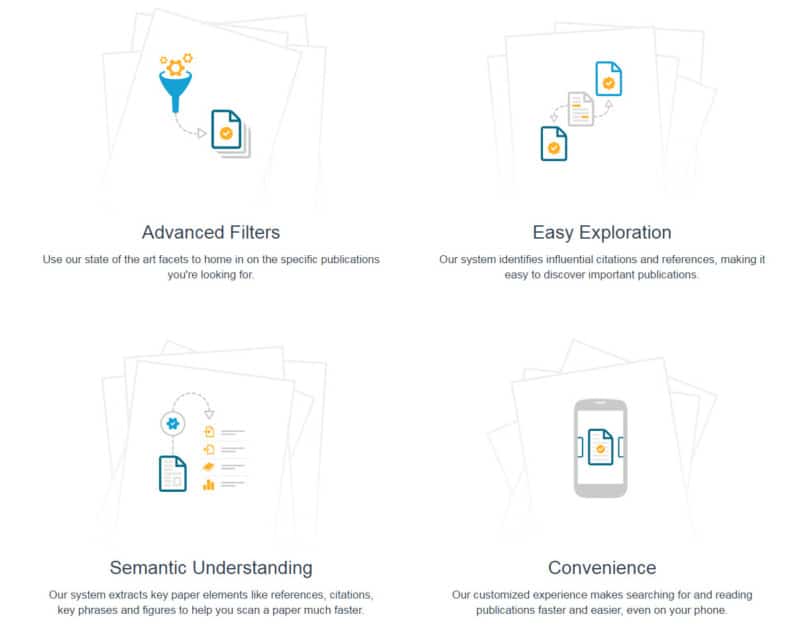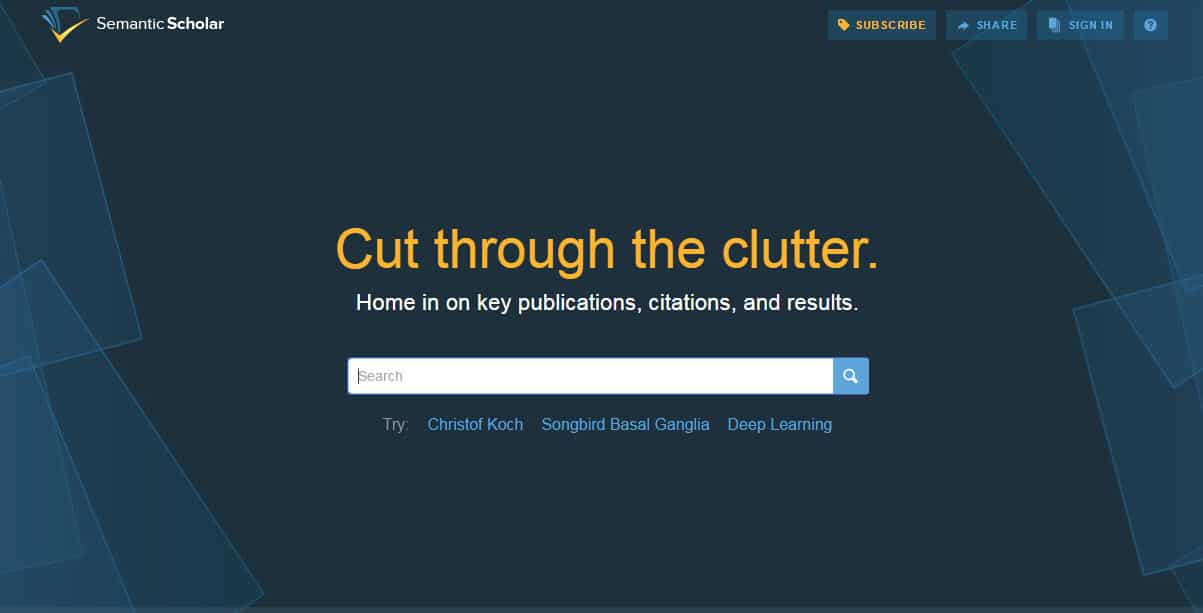Scientific papers come out so frequently that keeping up with the literature is a full-time job for anyone at the cutting edge of a significant field.
Semantic Scholar, a free online tool developed under the guidance of Microsoft cofounder Paul Allen, uses machine learning and other aspects of artificial intelligence (AI) to make the monumental task of parsing the scientific literature less onerous.
Semantic Scholar analyzes the full text of the article, looking for key phrases that it knows are important to track from reading a hundred thousand other articles in the field. It uses natural language processing to understand when a paper is discussing its results or those of another experiment, and from there, it can extract critical details like methods, materials, animal types, brain regions tested, etc. It pulls figures when it can, attempting to identify the contents so they can be searched and sorted.

ScienceInsider
. “For example, none of the most influential articles listed for [University of California, Berkeley, psychologist] Thomas Griffiths fall into his top five most cited articles.”
You can test out Semantic Scholar right now, though if you’re not in CS or neuroscience, you may not find many results you like.

